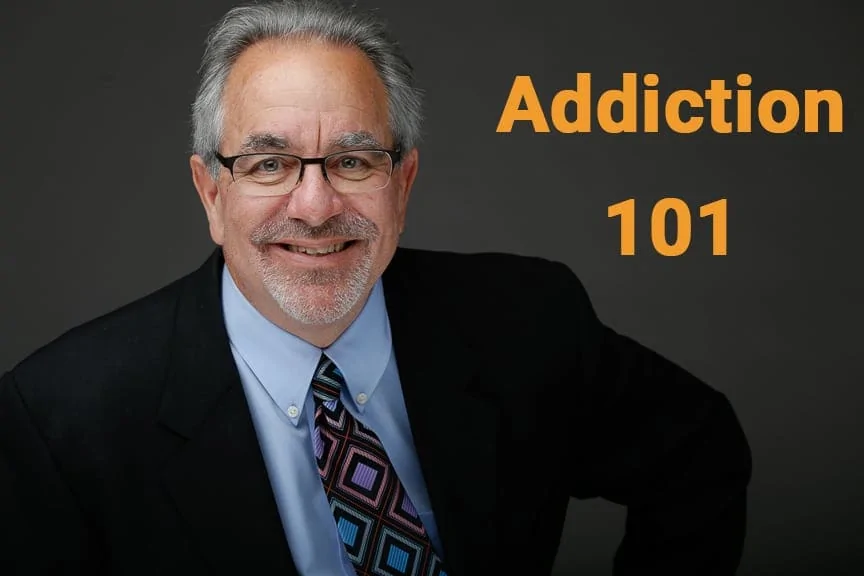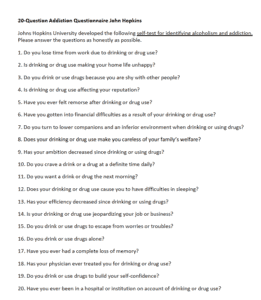Contents
Addiction Treatment 101 - "The Basics"

Simply put, getting clinical treatment is how substance-addicted people get better. The good news is that more people are getting help than ever, and the help is more widely available and effective than ever. The act of reaching out for help can be difficult, but it starts a chain reaction that leads to recovery. Call us now if you have any questions about addiction or recovery, for you or your loved one.
There’s a lot of confusion around the process of recovering from a substance use disorder (SUD), and we feel this discourages people from seeking help. So, we wanted to clear up some things about how treatment and recovery "really work."
When to Get Help?
Addiction progresses gradually, so what is the ‘line in the sand’ that needs to be crossed to warrant asking help from a professional?
First, keep in mind that addiction consultations are available right now, confidential, and free. So, if you are dealing with a substance issue, or know someone who may be, there’s absolutely no downside to reaching out for help immediately to ask questions.
There are many great questionnaires to help clarify the extent of the problem, the most common one is the 20 question one that is widely used (click on the image to the right).
Three questions to ask that might be illuminating are:
- “Have you tried to stop and found you cannot?”
- “Are you increasing the amount of substance used to get the same effects?”
- “Is the substance use negatively impacting your personal relationships or professional performance?”
What Is Addiction Treatment Like?
Treatment is different for every person. When you identify a provider, the clinical professional should “meet you where you are” and design a treatment plan with your involvement, that includes goals that you agree on.
One thing many people do not realize is that treatment is available for those who are still professionally working, in school, or maintaining a family. See "Outpatient Treatment" below.
What is Inpatient Addiction Treatment?
Inpatient or “residential” treatment, is what most people might associate with the word “rehab”. This is when a SUD sufferer goes into a 24-hour facility that provides a bed and meals as well as near-constant treatment support, facilitated by professionals. The activities are typically educational classes, physical exercise, and group and individual therapy sessions. Through these daily activities, the patient will discuss and process their issues with the facilitators, and learn coping skills to guard against relapse.
What is Detox?
Inpatient treatment is generally for those who are physically and mentally dependent on a substance. Because of this, prior to engaging in the activities, the individual may complete a “detox” to help them go through the withdrawal symptoms that come from ceasing to use substances. This medical assistance keeps the patient physically safe as well as more comfortable than if they stopped the substance intake “cold turkey” on their own. Stopping without medical oversight is not recommended as it can be extremely unpleasant it can even have life threatening consequences as the body reacts to not getting the substances it has been craving and dependent on for so long.
What is Intensive Outpatient Treatment (IOP) Addiction Treatment?
Outpatient treatment, sometimes referred to as 'PHP' or 'IOP' is where a SUD sufferer goes to a treatment facility during the day but is able to come home or to a sober living facility at night. The amount of time per day spent in treatment varies based on the program and the amount of support required by the client – it can vary from a couple of hours of treatment a week for outpatient treatment (typically for someone who has some sobriety under their belt) or it can be up to 5-8 hours a day if needed.
Outpatient treatment is normally indicated following detoxification and inpatient treatment to keep a person in recovery on the right path, or it can be a first stop for someone who is exploring options or is less chemically dependent on substances. Often, someone who has experienced a relapse after a period of sobriety may resume treatment at the outpatient level.
Why You Should Always Call Us to Check Your Benefits
Although we may not be in network with your specific insurance provider, we very well may be able to secure a "single case agreement" as a proven treatment program. In recent years, an increased emphasis on getting more people the help they need has led to more access to reputable treatment programs like ours, even when we appear to be "out of network."
The unique nature of the services we provide and our positive track record for helping professionals, Veterans, and first responders are factors that contribute to our ability to obtain a single case agreement. When in doubt, call us at (619) 452–1200 to let us know you want to attend our program (and/or fill out the Verification of Benefits as well to expedite the process). The bottom line is that we want you to get sober and we will work with you to help make this goal a reality!
What are 12-Step and Other Community Support Groups Like
Support Groups are effective during all stages of recovery, often in combination with other programs. Perhaps the best-known community based recovery program (or of any recovery program for that matter) are 12-Step programs such as Alcoholics Anonymous (AA).
For over 85 years, AA has been helping people to achieve sobriety, and many other 12-Step programs, such as Narcotics, Over-Eaters, Gamblers and Sex Addicts Anonymous (NA, OA, GA, and SAA respectively) have emulated this program. While it is difficult to fully study AA since it is both a grass-roots and anonymous movement, A recent article published by USA Today indicates that AA may be as high as 60% more effective than other treatment programs, and in fact many treatment programs use 12-Step methodology as part of either their treatment regime or aftercare program.
The act of showing up at a support group meeting and admitting you have a problem might be anxiety-inducing, but for nearly everyone, the relief and help they receive is immediate. 12-Step support group meetings, like all treatment, are participated in ‘anonymously’ and it is expected that participants practice anonymity and honor confidentiality.
Another option is Self Management and Recovery Training, or SMART Recovery, which has a more rational thinking and less spiritual approach than 12-step programs. Finally, there are many faith-based recovery programs, many of which incorporate elements of 12-Step programs but as aligned with a particular faith. All of these programs are readily available and are largely free of charge, a major benefit. However, they do not offer detox services or the focus of more regimented programs, something that appeals to many seeking recovery.
What is Medically Assisted Treatment (MAT) for Addiction?
Medically Assisted Treatment or MAT is a relatively new additional treatment option, and it can be used in all-of-the above levels of care. This treatment allows doctors to prescribe less harmful medications in safe dosages to help those using opioids (heroin, fentanyl), alcohol, or other drugs to safely cease using the more harmful substances. MAT has helped many SUD sufferers safely detox off of more harmful drugs; however, critics claim that without further treatment, MAT users are merely substituting one drug for another.
Most recovery practitioners agree that MAT by itself is only good for short-term harm reduction and should be combined with other treatment modalities to truly achieve long-term recovery.
Long-Term Maintenance
Studies have shown that one of the greatest indicators of long-term success is continued participation in clinical activities throughout the first years of sobriety. Support groups or 12-Step meetings or an invaluable resource for the newly recovered, but continuing clinical support is extremely helpful, as is living in a sober living house.
Why Wait?
This is a simplified list, but the most effective method for recovery is usually some coordinated combination of several of these treatment options. There is no “silver bullet” solution to SUD, nor does one size fit all. Treatment must be tailored to meet the needs of the individual. And of course, co-occurring disorders and other life needs must be met. However, for those seeking recovery, sustained abstinence for all mind-altering substance is the most critical enabler for long-term sobriety and a rewarding future life, and these treatment levels help the SUD sufferer help to figure out how to live life without the influence of substances.
We hope this primer has helped you, and you can call Scott right now at 619-993-2738 if you want to talk to one of America's leading experts in overcoming addiction.



